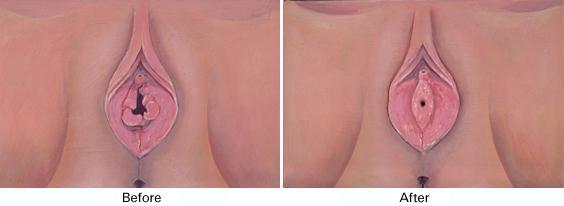Hymenotomy in Bulgaria
Search and Compare the Best Clinics and Doctors at the Lowest Prices for Hymenotomy in Bulgaria

Find the best clinics for Hymenotomy in Bulgaria
No clinics available
United Arab Emirates offers the best prices Worldwide
Price: $ 547

- Home
- Bulgaria
WHY US?
At Medijump, we're making medical easy. You can search, compare, discuss, and book your medical all in one place. We open the door to the best medical providers worldwide, saving you time and energy along the way, and it's all for FREE, no hidden fees, and no price markups guaranteed. So what are you waiting for?

Free

Best Price

Widest Selection

Risk-Free
What you need to know about Hymenotomy in Bulgaria

Hymenotomy is a surgical procedure to remove or open the hymen – the membrane near the opening of the vagina. It is usually performed on a woman with a septate or imperforate hymen that obstructs the flow of menstruation, as well as an unusually thick or rigid hymen, such as microperforated hymen, which limits access to the vaginal opening, causing pain and discomfort for sexual activities and removing/inserting tampons.
What does a Hymenotomy Procedure Involve?
You will receive general anesthetic before the procedure, but in some cases, a local anesthetic is used instead. Then, your surgeon will create an opening by cutting the membrane of the hymen using special surgical tools. The final step is securing any incisions using small dissolving stitches, which will be absorbed by your body naturally as you heal.
How Long Should I Stay in Bulgaria for a Hymenotomy Procedure?
You may be able to leave the hospital on the same day. However, you should plan to stay in Bulgaria for 5 to 7 days for initial recovery. Your doctor may also schedule a follow-up hospital checkup to monitor your healing.
What's the Recovery Time for Hymenotomy Procedures in Bulgaria?
Most patients feel well enough to return to work and resume their normal activities within a few days, but you may be recommended to rest for 1 week. You should be able to have sexual intercourse after 2 to 4 weeks following a Hymenotomy. It is important to consult with your surgeon as to when you can get back to your full routine, including work and exercises.
What sort of Aftercare is Required for Hymenotomy Procedures in Bulgaria?
It is very important to follow the post-operative care instructions that your surgeon gives you to help with your recovery, which usually includes recommended exercise, dietary restriction, and wound care. You also need to keep the genital area dry and clean and avoid inserting anything into your vagina, including a menstrual cup, tampon, or diaphragm at least until you have recovered completely.
What's the Success Rate of Hymenotomy Procedures in Bulgaria?
Hymenotomy is very safe, effective, and it has a high success rate. Although risks of side effects and complications are rare, they can occur, which include infection, bleeding, inflammation, scarring, injury to other organs, lingering pain, and scar tissue. Some people may also have complications when they become pregnant and give birth after the procedure, so make sure you consult with your surgeon if you are planning to become pregnant.
Are there Alternatives to Hymenotomy Procedures in Bulgaria?
Hymenotomy is currently the only option to treat imperforate, microperforated, and septate hymen. However, if you do not want to undergo surgery, you should discuss with your doctor what your best option will be.
What Should You Expect Before and After the Procedure
Before the surgery, you may be unable to have sex, menstruate, or use a tampon. After a hymenotomy, all of these problems are relieved and you can enjoy them without any pain. You will also be able to have normal menstruation.
Whilst the information presented here has been accurately sourced and verified by a medical professional for its accuracy, it is still advised to consult with your doctor before pursuing a medical treatment at one of the listed medical providers
No Time?
Tell us what you're looking for and we'll reachout to the top clinics all at once
Enquire Now

Popular Procedures in Bulgaria
Prices Start From $342

Prices Start From $222

Prices Start From $714

Prices Start From $69

Recommended Medical Centers in Bulgaria for procedures similar to Hymenotomy

- Interpreter services
- Translation service
- Religious facilities
- Medical records transfer
- Medical travel insurance
- Health insurance coordination
- TV in the room
- Safe in the room
- Phone in the room
- Private rooms for patients available

- Interpreter services
- Translation service
- Religious facilities
- Medical records transfer
- Medical travel insurance
- Health insurance coordination
- TV in the room
- Safe in the room
- Phone in the room
- Private rooms for patients available

- Interpreter services
- Translation service
- Religious facilities
- Medical records transfer
- Medical travel insurance
- Health insurance coordination
- TV in the room
- Safe in the room
- Phone in the room
- Private rooms for patients available

- Interpreter services
- Translation service
- Religious facilities
- Medical records transfer
- Medical travel insurance
- Health insurance coordination
- TV in the room
- Safe in the room
- Phone in the room
- Private rooms for patients available

- Interpreter services
- Translation service
- Religious facilities
- Medical records transfer
- Medical travel insurance
- Health insurance coordination
- TV in the room
- Safe in the room
- Phone in the room
- Private rooms for patients available

- Interpreter services
- Translation service
- Religious facilities
- Medical records transfer
- Medical travel insurance
- Health insurance coordination
- TV in the room
- Safe in the room
- Phone in the room
- Private rooms for patients available

- Interpreter services
- Translation service
- Religious facilities
- Medical records transfer
- Medical travel insurance
- Health insurance coordination
- TV in the room
- Safe in the room
- Phone in the room
- Private rooms for patients available

- Interpreter services
- Translation service
- Religious facilities
- Medical records transfer
- Medical travel insurance
- Health insurance coordination
- TV in the room
- Safe in the room
- Phone in the room
- Private rooms for patients available

- Interpreter services
- Translation service
- Religious facilities
- Medical records transfer
- Medical travel insurance
- Health insurance coordination
- TV in the room
- Safe in the room
- Phone in the room
- Private rooms for patients available

- Interpreter services
- Translation service
- Religious facilities
- Medical records transfer
- Medical travel insurance
- Health insurance coordination
- TV in the room
- Safe in the room
- Phone in the room
- Private rooms for patients available
Hymenotomy in and around Bulgaria
Introduction
Bulgaria has plenty to offer and tourists are going to be very impressed with the country’s mountainous landscapes, beautiful Black Sea beaches, fascinating history, friendly locals, lively nightlife, and affordability. Although the country’s holiday tourism is very much on the radar, it is also actually quite popular with medical tourists, due to its modern medical centers, highly trained medical professionals, state-of-the-art equipment, affordable healthcare, and mineral baths, thousands of medical tourists visit this country each year. Most of the medical tourists come for dental treatment, orthopedic surgery, elective surgery, neurosurgery, as well as health screening.
Popular Cities and Regions in Bulgaria
Bulgaria’s laid-back capital city, Sofia, is truly a must-visit. It is full of museums, Ottoman mosques, communist architecture, chic galleries, Eastern Orthodox churches, amazing restaurants, and upbeat clubs. One of the most popular landmarks in the country is the Aleksander Nevski Cathedral, which is an awe-inspiring church built between 1882 and 1912 to honor 200,000 Russian soldiers who died fighting for the independence of Bulgaria during the Russo-Turkish war. If you want to relax on beautiful beaches visit Varna, which is a major tourist destination during the summer. The second-largest, city in Bulgaria is Plovdiv and it is one of the oldest continuously inhabited cities in Europe. Tourists are attracted by the Roman Amphitheatre, Archeological Museum, and Tsar Simeon Central Garden.
Transport in Bulgaria
Most international tourists will arrive at Sofia Airport, which serves flights to most numerous major cities in Europe and the Middle East. There are several budget airlines that operate flights from this airport, including Ryanair and Wizz Air. Domestic flights are available, but they tend to be expensive. Therefore, to travel from one city to another, trains and buses are the best option. Buses and trains are punctual and affordable. However, if you are in a hurry, you should avoid trains as they can be a little slow. To travel around big cities, taxis are widely available and are really cheap. Just make sure you choose a licensed taxi to avoid being overcharged.
Visas in Bulgaria
While Bulgaria is not yet a part of the Schengen Area, it has a visa policy that is based on the Schengen system. Therefore, holders of Schengen Visa are allowed to enter the country. Additionally, citizens of 62 countries, including the US, Australia, and the UAE, can stay in the country for up to 90 days without a visa.
Weather in Bulgaria
From June to August, Bulgaria experiences summer. The weather can get a bit hot and humid, with an average temperature of 19°C to 21°C. July is the wettest month in the country. Winter, from December to February, is usually freezing. Autumn and Spring bring pleasant weather.
Additional Info
- Local Currency: The official currency is the Bulgarian Lev (BGN). 1 USD will get you approx. 1.8 BGN.
- Money & Payments: You can find ATMs in every city in the country. Credit cards are accepted in bigger restaurants and hotels. Tipping is sometimes expected.
- Local Language: Bulgarian is the official language in Bulgaria. Turkish and Roma are spoken by a minority of people. English is becoming more and more common in the country, but it is not widely spoken.
- Local Culture and Religion: Christianity dominates the population of Bulgaria, followed by Islam and Judaism.
- Public holidays: Bulgaria celebrates several historical and religious holidays, such as Orthodox Good Friday, Orthodox Easter Day, Independence Day, Culture and Literacy Day, Christmas Day, and Liberation Day.
Popular Searches
- Plastic Surgery in Thailand
- Dental Implants in Thailand
- Hair Transplant in Thailand
- Breast Augmentation Thailand
- Gastric Sleeve in Thailand
- Gender Reassignment Surgery in Thailand
- Laser Hair Removal in Bangkok
- Botox in Bangkok
- Dermatology in Bangkok
- Breast Augmentation in Bangkok
- Coolsculpting in Bangkok
- Veneers in Turkey
- Hair Transplant in Turkey
- Rhinoplasty in Turkey
- Stem Cell Therapy in Mexico
- Rhinoplasty in Mexico
- Liposuction in Mexico
- Coolsculpting in Tijuana
- Rhinoplasty in Korea
- Scar Removal in Korea
- Gastric Sleeve in Turkey
- Bone Marrow Transplant in India
- Invisalign in Malaysia
- Plastic Surgery in the Dominican Republic
- Tummy Tuck in the Dominican Republic
- Plastic and Cosmetic Surgery in Poland
- Rhinoplasty in Poland
- Hair Implant in Poland
- Dental Implants in Poland
- IVF in Turkey